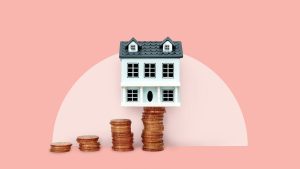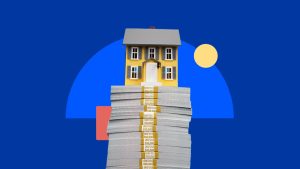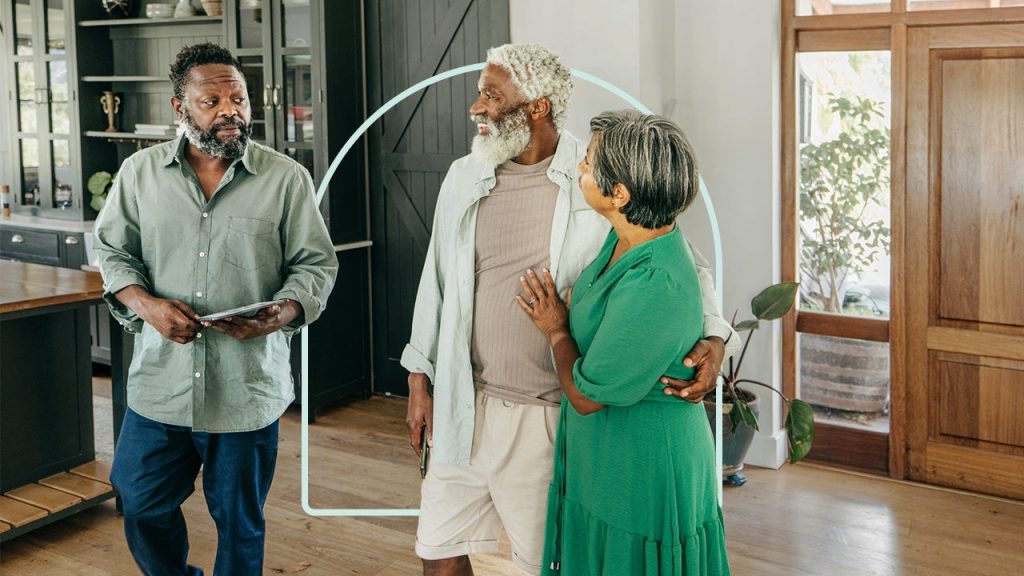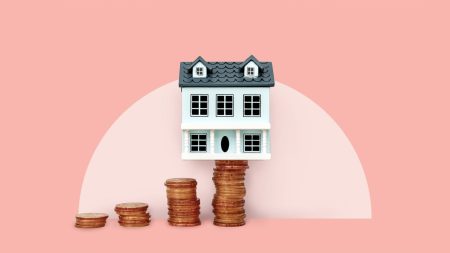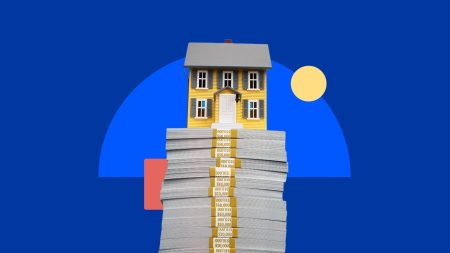Key takeaways
- For many Americans, including retired baby boomers, homeownership remains a strong aspiration.
- However, concerns over rising cost of living and lack of income present significant hurdles to owning a home.
- While buying a new, single-family home may be the ultimate goal, retirees should also strongly consider staying put, downsizing, buying a condo or townhome, or renting.
If you’re retired, buying a house may seem a little daunting, especially if you’re looking at getting a mortgage. Yet, homeownership remains a powerful aspiration even among older Americans. In fact, 82 percent of Americans say owning a home is part of the American Dream, beating out being able to retire, according to Bankrate’s Home Affordability Survey. Broken down by generation, baby boomers are the most likely to believe owning a home is part of the American Dream, at 89 percent.
The good news is that home equity has increased tremendously in the past five years, leaving many older homeowners with a valuable asset. With mortgage rates steadying, those entering and already in retirement may be questioning whether they should consider selling their home to buy another, as well as considering taking on another mortgage versus paying in full.
Let’s break down the info about buying a home in retirement and see if it makes sense.
Is buying a home after you retire a good idea?
Having a home base to call your own is valuable for some people on an emotional level. It can root you to a place, especially if you also have family in the area. For many people, their home holds a sentimental value just as much as it does a monetary value. This is reflected in the fact that 67 percent of baby boomers said they would buy their home again if they had to do it over, according to Bankrate’s Homeowner Regrets Survey.
Yet, there are many hurdles to owning a home. Chief among them for baby boomers are:
- Not enough income (51 percent)
- Too high of home prices (47 percent)
- Not being able to afford a down payment (44 percent)
However, if you don’t currently own a home and lack the sort of equity that can make purchasing a new home in the current market easier, buying a home in retirement may not be financially feasible.
Reasons for buying a home in retirement
If you’re in the position to buy, there are several reasons you may want to buy a home in retirement:
- Adds to your assets: Real estate is generally a solid investment. Buying a home at any age, whether it’s a primary residence or not, can help you diversify your assets. You can also rent it out to supplement your income.
- Meets your needs: Buying a home isn’t just a financial decision. There can be many reasons to buy a home, including wanting to downsize, moving to a more desirable location, finding a place with less maintenance or living closer to family. Whatever the reason, having a home that works for you is important.
- Builds a legacy for you and your family: Owning property is a popular way to build generational wealth. By owning a home, you’ll have real estate that you can pass on to the next generation.
- Affordability: When you own a home, you may not have to worry about your housing payment changing as much as you would if you were renting.
Learn more: Should I buy a house now, or wait?
Reasons against buying a home in retirement
Of course, there are drawbacks as well. Buying a home in retirement may not be suitable for you if any of these are major concerns:
- Affordability: Home prices have continued to rise year-over-year. Coupled with mortgage rates hovering near 7 percent, getting a mortgage on a new home could be expensive and significantly increase your cost of living. On top of the mortgage, insurance, property taxes and maintenance costs have been on the rise.
- Maintenance: Owning and maintaining a home can be both costly and time-consuming. As it turns out, maintenance and other hidden costs being more expensive than anticipated is the most common regret among homeowners who regret their home purchase, according to Bankrate’s Homeowner Regrets Survey. As you age, you may prefer to spend your time, energy and money differently.
- Lack of flexibility: Renting can be a more flexible option than owning a home outright, as you’re free to move without the hassle of selling your home once your lease is up.
- Lack of liability: Owning a home, particularly in areas prone to natural disasters, can be a liability. You could see your asset damaged or destroyed, and if you’re under-insured, you may lose out.
Housing options for retirees
As a retiree, buying a new, single-family home isn’t necessarily the best option. Here are some viable alternative options to consider.
1. Stay in your current home
If you currently own a home — especially if it’s paid off or has a low mortgage rate — you may just want to stay put. Having a minimal cost option may be the best route for you, at least for a time.
However, it’s important to consider what your current home is like. Does it require a lot of maintenance? Do you need to update it? Are you able to modify the home to meet your changing needs and abilities as you age? You’ll need to consider these questions as you continue to live in the home.
2. Downsize to a smaller home
Many people decide to downsize when they retire, especially if they own a larger home that used to house their children as well. Notably, 26 percent of baby boomers say that downsizing their living space is a sacrifice they’d make for more affordable housing, according to Bankrate’s Home Affordability Survey.
Downsizing comes with many positives, including less maintenance and having less stuff. However, many people may find they want to keep additional space. Plus, if you own your current home outright, you may find it cost-prohibitive to downsize into a new home.
3. Purchase a condo or townhome
For many retirees, buying a condo or townhouse is a no-brainer. You get the pride and stability of ownership, but without the upkeep. On top of that, condo and townhome prices are usually lower than those of single-family homes.
However, it’s important to know that not all condos and townhomes are created equal. Some may come with hefty association fees or special assessments to maintain common features. You’ll also be sharing walls with neighbors, which can lead to unwanted noise.
4. Rent a home or apartment
If you don’t want to buy a home, renting is still a viable option. Right now, it’s actually cheaper to rent than to buy in all 50 of the country’s largest metro areas, according to Bankrate’s Rent vs. Buy Study. The downsides? You won’t have an asset that you build equity in and you’ll have less control over how fast your housing costs rise. That said, renting offers more flexibility over your location and, if something breaks, you just have to call maintenance.
How to buy a home after retirement
It’s slightly more complicated for a retiree to apply for a mortgage as you may have many sources of income. For instance, retirees have access to income sources typically unavailable to non-retirees, including:
- Social Security
- Retirement account withdrawals (401(k), Traditional IRA)
- Tax-free Roth IRA withdrawals
- Reverse mortgage
- Survivor’s benefits
- Annuity income
- Pension
You’ll need to have proof of each source of income. Once you have the financing squared away, the process of buying a home is relatively straightforward.
Read the full article here
